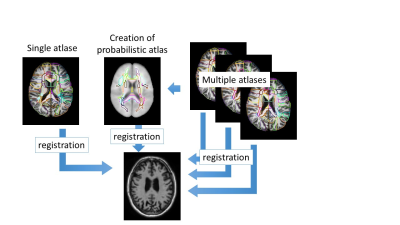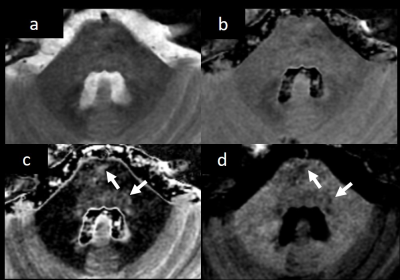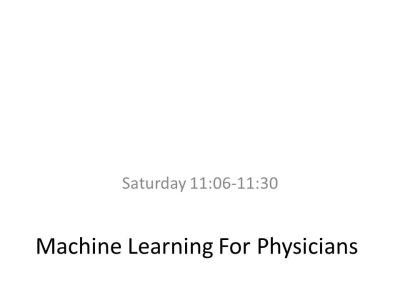|
Weekend Educational Course
Analyzing the Brain: New Paradigms |
|
Analyzing the Brain: New Paradigms: Part 1
Weekend Course
ORGANIZERS: Qiyong Gong, Kei Yamada
Saturday, 16 June 2018
| S03 |
08:00 - 09:30 |
Moderators: Qiyong Gong, Kei Yamada |
Skill Level: Intermediate
Session Number: WE-07A
Overview
To provide an overview of modern brain analysis techniques.
Target Audience
Clinicians, physicists, engineers, computer scientists who are interested
in performing brain analysis using modern techniques.
Educational Objectives
As a result of attending this course, participants should be able to:
-Describe how to plan MRI protocols that are appropriate for advanced image analysis;
-Discuss the difficulties standardizing multi-site MRI images;
-Compare and contrast automated brain segmentation techniques;
-Paraphrase network analysis theory; and
-Summarize machine learning methods.
08:00
|
|
 Optimizing Acquisition for Robust MR Data Optimizing Acquisition for Robust MR Data
James Pipe
|
08:22
|
|
 Standardization Challenges: Multi-Site Standardization Challenges: Multi-Site
Thomas Chenevert
|
08:44
|
|
 Population-Based Neuroimaging for Disease Etiology & Prediction Population-Based Neuroimaging for Disease Etiology & Prediction
Meike Vernooij
Many neurological diseases, especially those occurring at older age, have a long subclinical phase during which a person is asymptomatic and does not seek medical attention. As a consequence, once symptoms manifest, in many instances the pathologic changes caused by the disease process are already advanced and mostly irreversible. To study disease in the asymptomatic stage, population-based studies are of great importance. Medical imaging applied in these studies, or ‘population imaging’ can, non- or minimally-invasively, show the changes that occur in the human body that may reflect either early disease, intermediate factors or risk indicators of disease.
|
09:06
|
 |
 Automatic Segmentation Automatic Segmentation
Susumu Mori
In this presentation, the basic concept of anatomical segmentation is explained. This presentation first discusses about the importance of tissue segmentation for modern medical data analysis, in which difficult neurological conditions are often the target of the research. Then different types of segmentation approaches are explained. In the last section, an interesting paradox of the tissue segmentation, namely the lack of ground truth, is discussed in detail. This presentation should be informative for both method developers and users.
|
09:28
|
|
Break & Meet the Teachers |
|
| |
|
Analyzing the Brain: New Paradigms: Part 2
Weekend Course
ORGANIZERS: Qiyong Gong, Kei Yamada
Saturday, 16 June 2018
| S03 |
10:00 - 11:30 |
Moderators: Qiyong Gong, Kei Yamada |
Skill Level: Intermediate
Session Number: WE-07B
Overview
To provide an overview of modern brain analysis techniques.
Target Audience
Clinicians, physicists, engineers, computer scientists who are interested in performing brain analysis using modern techniques.
Educational Objectives
As a result of attending this course, participants should be able to:
-Describe how to plan MRI protocols that are appropriate for advanced image analysis;
-Discuss the difficulties standardizing multi-site MRI images;
-Compare and contrast automated brain segmentation techniques;
-Paraphrase network analysis theory; and
-Summarize machine learning methods.
10:00
|
 |
 Lesion Detection (MS, Vascular Lesions) Lesion Detection (MS, Vascular Lesions)
Shingo Kakeda
The role of brain MRI in diagnosis of multiple sclerosis (MS) and vascular lesions is well established, and the recently developed MR techniques, including synthetic MRI, myelin map with q-Space diffusion MRI, susceptibility-weighted imaging (SWI) and quantitative susceptibility mapping (QSM), further improve the diagnostic value in a research and clinical routine setting. This course will introduce the recent data pertaining to the use of new MR techniques in assessing MS lesion and small vascular lesions (cerebral microinfarcts).
|
10:22
|
|
 Graph-Theory Brain Network Analysis Graph-Theory Brain Network Analysis
Yong He
|
10:44
|
|
 Adversarial generative network - new generation of image generation Adversarial generative network - new generation of image generation
Masayuki Ohzeki
We introduce a concept of the generative adversarial network and consider its possibility of medical application.
|
11:06
|
 |
 Machine Learning II (For Medicine) Machine Learning II (For Medicine)
Bradley Erickson
This session will describe the basic concepts of machine learning, both traditional machine learning and deep learning. Particular emphasis will be placed on how ML methods can give results that appear good, but may not be correct or representative of real world performance.
|
11:28
|
|
Adjournment & Meet the Teachers |
|
| Back |
| The International Society for Magnetic Resonance in Medicine is accredited by the Accreditation Council for Continuing Medical Education to provide continuing medical education for physicians. |




